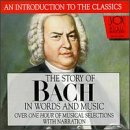Robert Lowry composed this hymn in 1874 during the Easter season. He became deeply impressed by the words of Lk24:6-8 – “He is not here, but is risen: remember how he spake unto you when he was yet in Galilee, Saying, The Son of man must be delivered into the hands of sinful men, and be crucified, and the third day rise again. And they remembered his words”. Within minutes, the words and music were formed at his pump organ. This hymn has become a favourite resurrection hymn.
Robert Lowry was a Baptist preacher who after preaching on Sunday mornings, composed hymns on Sunday night to relax.
Music and Lyrics: Robert Lowry
Low in the grave He lay,
Jesus my Savior,
Waiting the coming day,
Jesus my Lord!
Refrain:
Up from the grave He arose,
With a mighty triumph o’er His foes,
He arose a Victor from the dark domain,
And He lives forever, with His saints to reign.
He arose! He arose!
Hallelujah! Christ arose!
Vainly they watch His bed,
Jesus my Savior;
Vainly they seal the dead,
Jesus my Lord!
Death cannot keep its Prey,
Jesus my Savior;
He tore the bars away,
Jesus my Lord!
A Blessed Easter to everyone.
Podcast: Play in new window | Download









